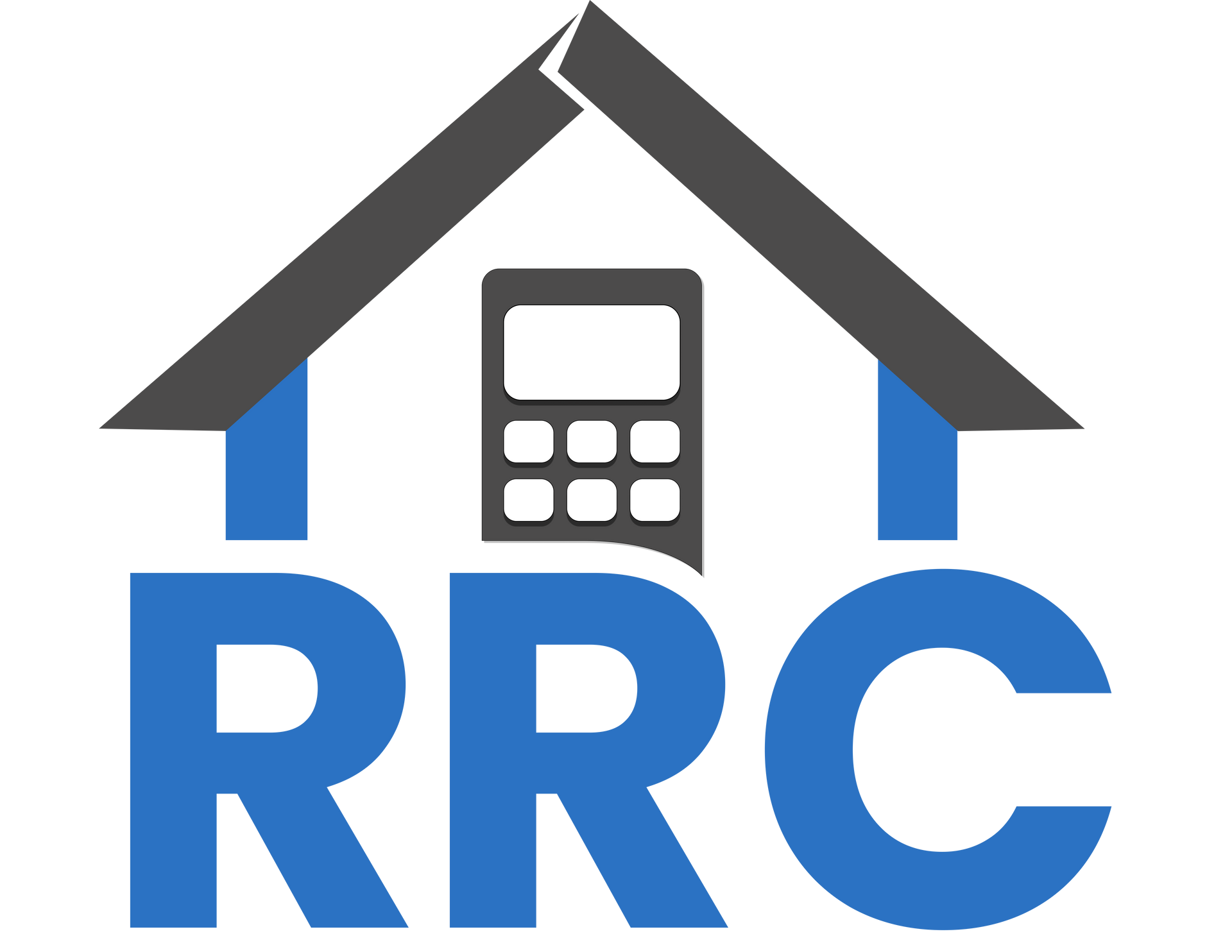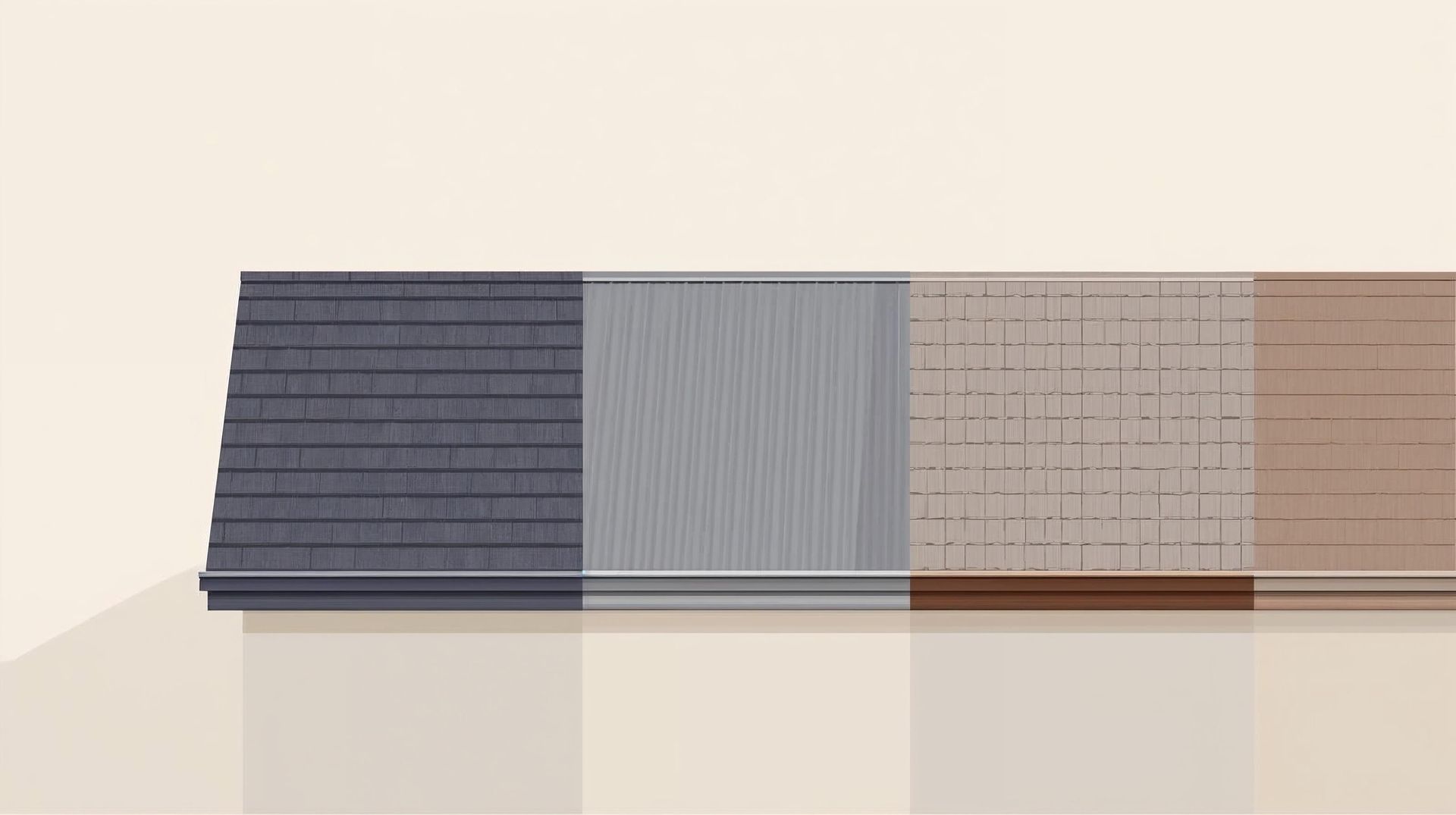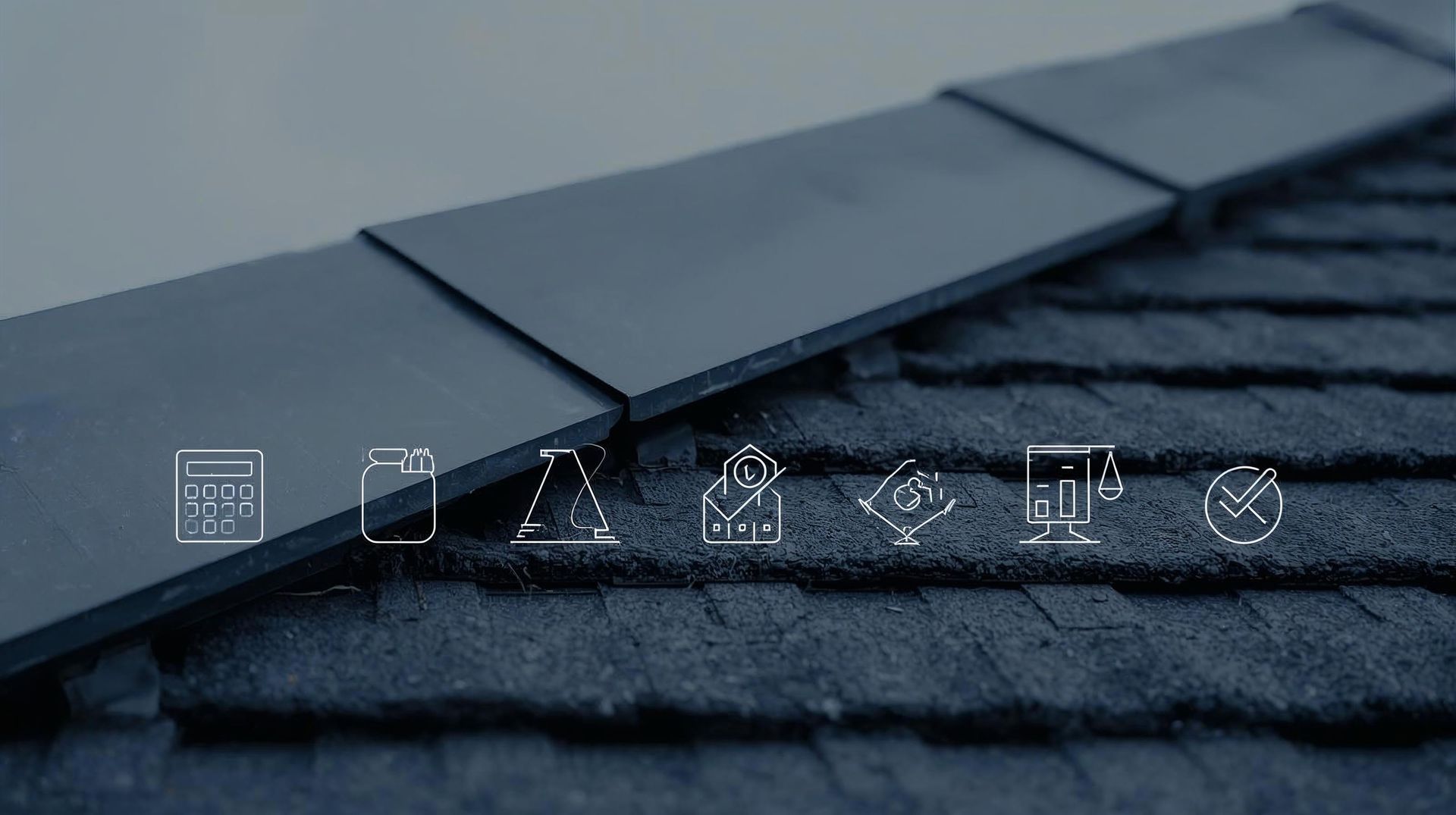Hidden Roof Replacement Costs Homeowners Often Overlook
Key Takeaways
- Roof replacement costs vary depending on roof size, material type, and labor costs.
- The average home roof replacement costs between $5 to $10 per square foot.
- Choosing the right roofing contractors and materials can help save money in the long run.
- Factors like existing gutters, roof pitch, and installation complexity can influence total cost.
- Always request a free estimate from a reputable roofing contractor before committing.
Ready to get a clearer picture?
Try our Roof Replacement Cost Calculator to estimate your roofing costs based on material, roof size, and location. It’s quick, free, and helps you plan smarter.
How Much Does a Roof Replacement Cost in the U.S.?
The total amount you'll pay to replace a roof will vary a ton; the national average is approximately $10,000 for American homeowners, smaller homes costing around $5,000, and an entirely new roof on larger or more complex roofs costing upwards of $25,000.
The price is typically assessed per square foot. Most roofing companies charge fees for their labor that range between $4 - $12 per square foot. A 2,000 square foot asphalt shingle roof might range between $8,000 and $12,000, depending upon labor and material, of course.
If there is structural damage or you choose to remove the old shingles before re-roofing, this will drive the invoice up as well.
Factors That Influence Roof Replacement Cost
1. Roof Size and Roof Complexity
Bigger roofs use more materials and more labor, so it will add to the cost. The square footage and pitch of the roof will determine the amount of time it takes for installation. Generally, the steeper or the more complex the design is, the longer it will take and the more it will cost.
For instance, a larger roof on a two-story home could result in a dramatic cost difference from a smaller, single-level home due to safety gear requirements and access.
2. Roofing Materials
The roofing material you choose makes the biggest difference in your project’s actual cost.
Here’s a quick comparison of average prices per square foot for different roofing materials in the U.S.:
| Roofing Material | Average Cost per Sq. Ft. | Expected Lifespan | Highlights |
|---|---|---|---|
| Asphalt Shingles | $4–$7 | 20–25 years | Most common and affordable option |
| Architectural Shingles | $6–$10 | 30–50 years | Better appearance and durability |
| Metal Roofing (Steel or Aluminum) | $9–$14 | 40–70 years | Energy-efficient and long-lasting |
| Copper Roofing | $15–$30 | 70+ years | Premium option with a timeless look |
| Slate Tiles | $20–$40 | 75–100 years | Luxury material, high durability |
| Wood Shingles or Shakes | $8–$12 | 25–40 years | Natural aesthetic requires upkeep |
| Clay Tiles | $12–$25 | 50+ years | Heavy but durable in hot climates |
Each roof type comes with trade-offs. For example, asphalt shingles remain the most popular because they are cost-effective and easy to replace. Metal roofs and slate tiles have a higher cost upfront but offer better longevity and energy savings.
Want a personalized estimate for your new roof?
Use the
Roof Replacement Cost Calculator to compare how asphalt shingles, metal roofing, and slate differ in total cost per square foot. Get a realistic breakdown before you start your project.
3. Labor and Installation Costs
Labor costs can make up as much as 40 to 60 percent of the total cost. The more complicated your roof installation is, the more it will cost you.
Some expense items that increase labor costs would be:
- Steep roofs
- Multiple layers
- Difficult access to the roof
- Design complexity or skylights
Most contractors charge between 60 to 100 dollars per hour, depending on the size of the job and location.
Hiring a reputable roofing contractor will ensure that you get a good job, meet building codes, and save you money from repairs later.
4. Tear-Off and Disposal of Old Materials
Most roofing contractors will tell you that you must take off the old roofing to install the new roof. The old roofing can include shingles, underlayment, and nails, which must be removed. Consequently, disposal costs can range from $500 to $1,500 based on the square footage of the roof and the weight of the roofing material.
In some instances, contractors will recycle a metal panel roof or an asphalt shingle roof. This will tend to reduce disposal costs by a small amount.
5. Roof Deck Repairs and Structural Fixes
Once the old roof is removed, hidden problems can appear, such as rotting wood, water damage, or mold growth. Repairs to the roof decking can add anywhere from $300 to $3,000, depending on severity.
Ignoring these issues can cause further damage later and increase roof replacement costs down the road.
6. Permits, Insurance, and Warranties
Most large-scale roofing projects done in the United States generally require permits due to local codes or, in certain instances, because of your insurance company. The cost of permits is determined by the city or county where you live, and is usually priced between $100 and $500.
Most homeowner's insurance does include coverage for storm-related damage; however, they do not cover wear and tear from the elements. It is best to check ahead of time and confirm you have coverage for storm damage before commencing on a new job.
A good manufacturer's warranty for material and/or contractor's warranty for labor on a new roof may provide you with peace of mind, along with protection from unknown costs in the future.
Hidden Costs Homeowners Often Overlook
Even with a detailed estimate, some expenses surprise homeowners:
- Gutter replacements or adjustments when removing existing gutters
- Extra labor for steep or hard-to-access roofs
- Plywood or insulation replacement if water damage is found
- Haul-away fees for old materials
As a rule of thumb, it’s wise to set aside 10 to 15 percent of the total project cost for surprises.
Choosing the Right Roofing Contractor
Roofing contractors are not considered equal. You may find some roofers who will charge you for small services, while others will just add them in as part of a flat price.
Look for people who:
- Provide a full breakdown of costs
- Can show you a license and proof of insurance
- Can offer you a workmanship warranty
- Use a trusted roofing material
- Have strong reviews in your community
An experienced roofing contractor will not only have a smoother installation process, but they will also save you money with efficient planning and fewer mistakes.
Pro Tip: Before hiring your roofer, read [What to Ask a Roofer: 10 Important Questions to Consider Before You Hire Us] to learn how to evaluate professionals.
Roof Replacement vs. Roof Repair: When to Choose Which
Occasionally, homeowners start questioning the necessity of a full roof replacement. The fact is, roof repairs can be a cost-effective stopgap measure if the damage is minor.
If it is just a few missing shingles, repairs could quite possibly be appropriate. But, when one or two leaks morph into spreading or multiple leaks, and old or worn materials require attention and further repairs, a complete roof replacement is the wise investment.
Maximizing Value from Your Roof Replacement Project
To get the most from your roofing project, follow these tips:
- Compare multiple roofing companies for competitive pricing
- Ask about manufacturer warranties and contractor warranties
- Choose premium materials if staying long-term; go for cost-effective options for resale
- Plan during off-season months when most roofers offer discounts
- Schedule regular inspections to protect your home value and prevent costly repairs
Conclusion:
Replacing a roof is much more than simply a matter of shingles. It is about the protection of your home, the curb appeal it provides, and the long-term comfort it offers to your family's home. The average cost for a roof replacement could seem expensive, but with the right preparation, a good roofing contractor, and a reliable product, replacing your roof can be one of the best investments in your home.
Once you become aware of the circumstances surrounding your replacement cost, you will know about all the root costs that you may not have expected, which will help you save money and also ensure that your new roof will do its job for your home for many years to come.
Are you ready to start your roofing project? Call a trustworthy local roofer today for a free estimate, and you can see how much your total roof replacement would be.
What is the average cost to replace a roof in the U.S.?
Most homeowners spend between $8,000 and $18,000, depending on roof size, material type, and labor costs.
Do roofing companies charge for removing the old roof?
Yes, many charge an additional $500 to $1,500 for removing and disposing of old shingles or existing roofing materials.
How does roof size affect total cost?
More square footage means more materials, labor, and disposal costs. A larger roofing square always increases the overall cost.
Which roofing material is the most cost-effective?
Asphalt shingles are the most budget-friendly, while metal roofing and architectural shingles offer better durability at a higher cost.
Can new gutters or ventilation systems add to the roof replacement cost?
Yes. Replacing or adjusting existing gutters or adding new vents can raise the total cost by several hundred dollars.
Are wood shingles and metal shingles still popular?
Yes. Wood shingles provide a rustic look, while metal shingles are gaining traction for durability and energy efficiency.
Do roof replacement costs vary depending on region?
Absolutely. Prices vary depending on local labor rates, home size, and weather conditions.
What factors can increase the actual cost of a new roof?
Hidden water damage, extra labor, or premium materials like copper roofing or slate tiles can raise the actual cost significantly.
How do insurance companies handle roof replacement claims?
Most insurance companies cover storm-related roof damage, but not normal wear. Always check your policy before starting your roofing project.
How often should a roof be replaced?
Most asphalt shingle roofs last 20 to 25 years, while metal roofs and slate roofs can last over 50 years with regular maintenance



